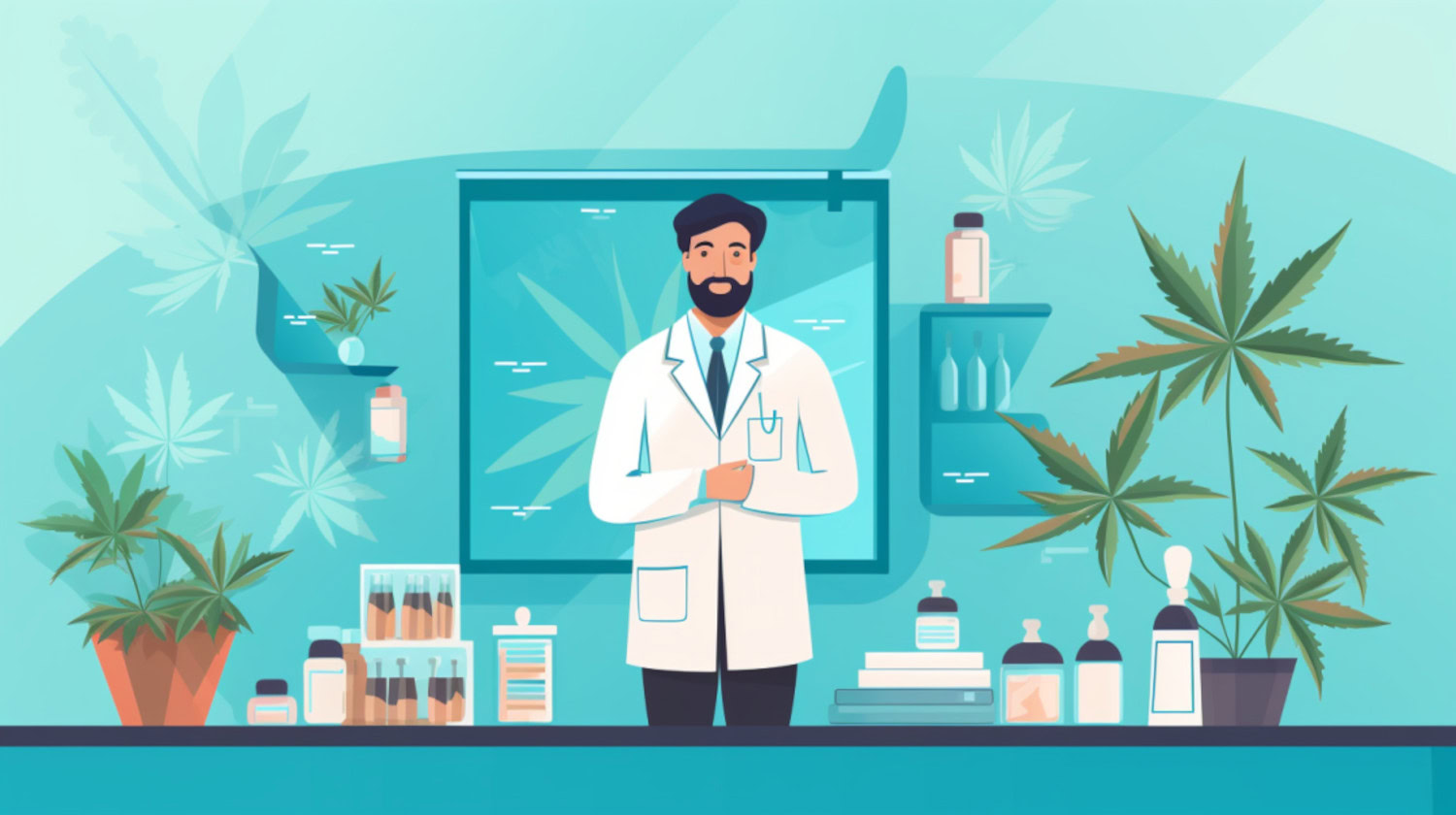Key Takeaways
- Most medical cannabis states maintain a list of qualifying conditions for patients and doctors.
- Anxiety is the most common mental illness in the U.S.> Research has shown that cannabis may help alleviate the condition.
- Many states have listed anxiety as a qualifying condition > Patients in these states are eligible to use cannabis for treatment and management of anxiety.
Many states in the US have legalized medical cannabis. Some restrict its use to patients who have been diagnosed with one or more specific medical conditions or illnesses. These ailments are commonly referred to as qualifying conditions.
Research has shown that cannabis may help alleviate anxiety, a disorder that the American and Depression Society of America says is the most common mental illness in the United States. If you are one of the 40 million American adults who live with the disorder, you may be wondering: Can you get a medical card for anxiety?
What are Qualifying Conditions?
A qualifying condition is an illness or medical disorder that states recognize as eligible for a medical cannabis card. In many states in the US, patients must have been diagnosed with one or more qualifying conditions to get a medical cannabis card.1
Illnesses such as cancer, chronic pain, seizure disorders, and multiple sclerosis have been approved as qualifying conditions by the medical marijuana programs in many jurisdictions. Some states have also approved mental health disorders, with regulators in many states including anxiety as a qualifying condition.
With nearly one in five Americans (19.1%) living with anxiety, millions of adults may be eligible to use medical cannabis.
How Can I Find My State's Qualifying Conditions?

To find out if you can get a medical card for anxiety where you live, you’ll need to know the qualifying conditions in your state.
State laws and regulations vary from jurisdiction to jurisdiction, and unfortunately, not all states have approved anxiety as a qualifying condition for the use of medical cannabis. Additional resources to learn about medical cannabis and qualifying conditions for each state are available from the National Organization for the Reform of Marijuana Laws (NORML), the Marijuana Policy Project, and Americans for Safe Access.
If you are eligible to access medical cannabis in your state, review the step-by-step process for obtaining a medical cannabis card.
Many states require patients to first visit a doctor to get a recommendation. Then, patients follow the procedure outlined, which may include submitting the required paperwork and paying any fees. Once the steps are completed, patients can visit a licensed dispensary. There, they can ask the staff for the best medical marijuana for anxiety that they have available.
Which States Have Anxiety as a Qualifying Condition?
Several states have approved anxiety as a qualifying condition, allowing affected individuals to get a doctor’s recommendation to use medical cannabis. Patients in Nevada, New Jersey, North Dakota, Oklahoma, and Pennsylvania are eligible to use medical cannabis under the laws of their state programs.
To find out more, refer to your state’s medical marijuana registry, or select your state below.
If anxiety has not been approved as a qualifying condition in your state, there still may be ways for patients with anxiety to qualify for a medical card.
If My State Doesn't Have Anxiety as a Qualifying Condition, Can I Still Get a Medical Card?

Even if your home state has not approved anxiety as a qualifying condition, you may still be able to qualify as a medical marijuana patient.
Many states have approved related mental health conditions, giving patients additional options to get a medical card for anxiety. Other states give doctors significant discretion and allow them to recommend medical cannabis to any patient who might benefit from it.
In California, for example, doctors can recommend medical cannabis for a patient with a listed qualifying condition or other chronic conditions that, “either substantially limits a person's ability to conduct one or more of major life activities as defined in the federal Americans with Disabilities Act of 1990, or if not alleviated, may cause serious harm to the person's safety, physical, or mental health.”
Patients in Massachusetts are similarly eligible, with the state’s regulations allowing doctors to recommend medical cannabis for “other debilitating conditions as determined in writing by a certified physician,” such as anxiety. In Maryland, patients are eligible for a medical card for one or more listed qualifying conditions “or another chronic medical condition which is severe and for which other treatments have been ineffective.” In Virginia, New York, and Oklahoma, patients can get a medical card for any condition for which a physician finds cannabis may benefit the patient, including anxiety.
In Florida, doctors can recommend medical cannabis for a list of qualifying conditions, including post-traumatic stress disorder (PTSD), as well as “medical conditions of the same kind or class as or comparable to the others listed,” giving doctors the latitude to issue medical cannabis recommendations for similar conditions such as anxiety. Medical cannabis regulations in Washington, D.C. allow the use of medical marijuana for “any debilitating condition as recommended by a DC licensed doctor or as self-certified by a patient.”
Patients in states that don't list anxiety or a related condition as a qualifying condition may have other options to obtain a medical card. For example, medical marijuana regulations in Utah and Arizona allow individuals to petition regulators to approve new qualifying conditions.
Is Anxiety a Symptom of Any Qualifying Conditions?
While anxiety may not be a qualifying condition in some states, many programs list related conditions as qualifying for medical cannabis. For example, patients with PTSD often experience anxiety related to their condition. In every state except Alaska, PTSD has been approved as a qualifying condition, allowing patients to get a medical card to treat their anxiety and other symptoms.
Similarly, many patients have anxiety related to chronic pain or insomnia. Since many states have approved chronic pain or sleep disorders as qualifying conditions, patients with anxiety or other co-occurring mental health conditions may still be eligible to get a medical card.
Many patients with anxiety have found that cannabis can help them manage their condition and its symptoms. For some patients, however, cannabis can aggravate anxiety, so patients with the condition should use medical cannabis with care.2 For more information, consult a qualified physician.
References
- Boehnke KF, Gangopadhyay S, Clauw DJ, Haffajee RL. Qualifying Conditions Of Medical Cannabis License Holders In The United States. Health Affairs. 2019;38(2):295-302. doi:https://doi.org/10.1377/hlthaff.2018.05266 ↩︎
- Sharpe L, Sinclair J, Kramer A, de Manincor M, Sarris J. Cannabis, a cause for anxiety? A critical appraisal of the anxiogenic and anxiolytic properties. J Transl Med. 2020;18(1):374. Published 2020 Oct 2. doi:10.1186/s12967-020-02518-2 ↩︎
The information in this article and any included images or charts are for educational purposes only. This information is neither a substitute for, nor does it replace, professional legal advice or medical advice, diagnosis, or treatment. If you have any concerns or questions about laws, regulations, or your health, you should always consult with an attorney, physician or other licensed professional.




